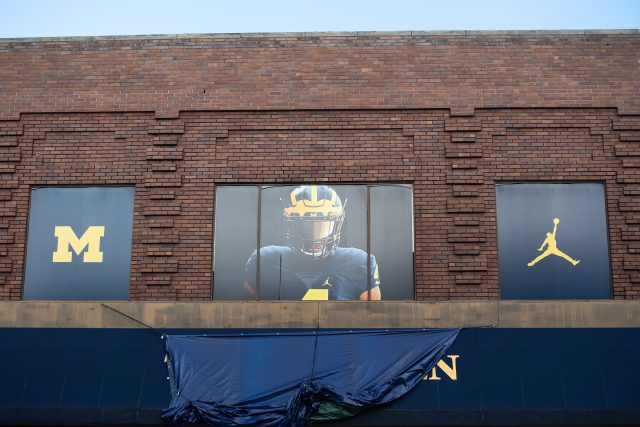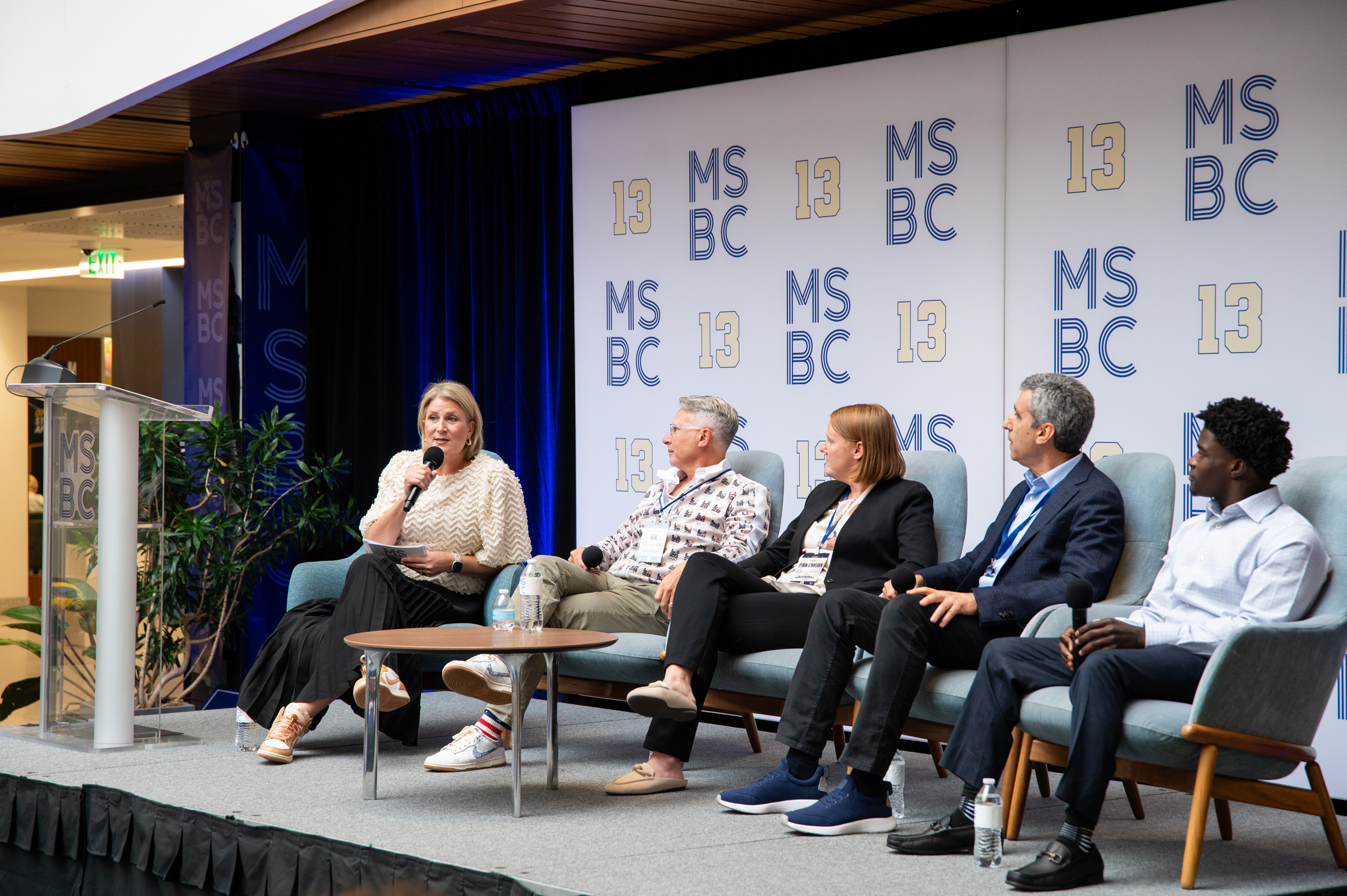[ad_1]
Nearly a month after MDen’s previous contractor, Heritage Collegiate Apparel, declared bankruptcy, the University of Michigan Athletic Department began a new partnership with Legends Global Merchandise. The deal, announced Aug. 31, includes a 10-year partnership with the contractor, which will sell U-M branded merchandise under the University’s name.
Athletic Director Warde Manuel announced in a press release that this new relationship with Legends will allow the sale of U-M branded apparel and merchandise to continue.
“Our partnership with Legends will provide our fans with a fully integrated retail experience both in-venue and online,” Manuel wrote. “Fans will be able to purchase a comprehensive assortment of licensed products from a best-in-class retail partner that focuses on a holistic customer experience. We are excited to begin this new venture with Legends.”
MDen was originally co-founded in 1976 by David Hirth and Doug Horning, two Ann Arbor businessmen and friends who bought the shop — previously known as Stein & Goetz Sports Goods. The company became the University’s official retailer in the early 1990s. With the exception of 2009, when their contract ended for a year, MDen has been the go-to store for all apparel and merchandise for many U-M fans, students and athletes.
Scott Hirth, son of David Hirth and former Heritage president, filed for a chapter 11 bankruptcy on Aug. 16. Amid piling debts to vendors and building owners for missing rent and services payments — including about $9 million owed for royalties to the University Athletic Department, $2.6 million debt to Nike, $4.2 million in damages to Branded Custom Sportswear and $66,766 in unpaid rent to Briarwood Mall — the company defaulted on its payments.
Scott Hirth did not respond to requests for comment regarding the bankruptcy filing or associated court cases.
Law School professor John Pottow specializes in commercial and bankruptcy law. In an interview with The Michigan Daily, Pottow said a chapter 11 bankruptcy filing allows companies to continue operations but requires that they receive a court’s permission for certain transactions.
“You’re allowed to engage in routine business,” Pottow said. “So they can still continue to sell sweatshirts, even though they’re in chapter 11 bankruptcy. … But if they want to do an unusual transaction like sell their assets to a third party purchaser, then they would have to get the court’s permission to do so.”
Pottow said the filing requires the business to create a plan to resolve its debts, which must be approved by creditors — those who are owed money by the debtor.
“When a business can’t pay all its debts, it comes up with a plan and sends it out to its creditors who then get to vote on the plan and they get ballots,” Pottow said. “It’s not just one big vote, but there (are) classes of creditors depending on the type of debt that they’re owed. And if a supermajority of each class accepts the plan, then the plan is confirmed.”
The University Athletic Department owns the name “MDen” and stripped Heritage Collegiate Apparels of the rights to use and operate under the name following the bankruptcy filing. According to government records, Scott Hirth changed the company’s name to Heritage Collegiate Apparel on May 29. Additionally, the retailer announced on Instagram the immediate closure of their location at Twelve Oaks Mall in Novi Aug. 15 and announced the closure of two more locations on X — one on Columbia Street in Detroit and one in Briarwood Mall in Ann Arbor — a few days later on Aug. 19.
Kinesiology junior Dani Stassa, who worked for MDen on Main Street in 2022, said in an interview with The Daily that she was surprised when MDen declared bankruptcy.
“It surprised me because they don’t have a monopoly on Michigan clothing, but they definitely are the go-to (store),” Stassa said. “There were always customers. There were always people looking around. I mean, on Tuesday at 1 p.m., there (were) always customers in the store. It was never empty.”
In late August, Heritage Collegiate Apparel entered discussions for the sale of its own assets ahead of the anticipated 2024 football season, with Lids Holdings being named as a potential buyer.
Pottow said the courts would need to approve a sale like this. If approved, Heritage Collegiate Apparel would use the money to pay back its debts.
“If there’s a sale — this happens in all sorts of chapter 11s — the bankruptcy plan is basically, (Heritage Collegiate Apparel) gets the proceeds of the sale and distributes it out to the creditors of the bankruptcy estate in the order they’re entitled to be paid,” Pottow said.
Stassa said she believes the store will continue to be popular regardless of who owns it.
“It won’t really matter who the owner is, as long as they keep the name and hopefully the location on State Street,” Stassa said. “I imagine going forward, it’ll still be a good business.”
Daily Staff Reporter Eilene Koo can be reached at ekoo@umich.edu.
Related articles
[ad_2]
Source link











